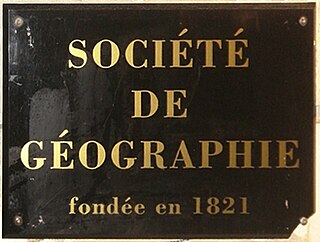 W
WThe Arab Congress of 1913 met in a hall of the French Geographical Society at 184 Boulevard Saint-Germain, Paris from June 18–23 in Paris to discuss more autonomy for the Arab people living under the Ottoman Empire. Furthermore The Arab National Congress, which was established by 25 official Arab Nationalists delegates, was convened to discuss desired reforms and to express their discontent with some Ottoman policies. It took place at a time of uncertainty and change in the Ottoman Empire: in the years leading up to World War I, the Empire had undergone a revolution (1908) and a coup (1913) by the Young Turks, and had been defeated in two wars against Italy and the Balkan states. The Arabs were agitating for more rights under the fading empire and early glimmers of Arab nationalism were emerging. A number of dissenting and reform-oriented groups formed in Greater Syria, Palestine, Constantinople, and Egypt. Under Zionist influence, Jewish immigration to Palestine was increasing, and England and France were expressing interest in the region, competing for spheres of influence.
 W
WKołłątaj's Forge was a group of social and political activists, publicists and writers from the period of the Great Sejm in the Polish–Lithuanian Commonwealth.
 W
WLebanese Laïque Pride, also Laïque Pride, Laic Pride, or Secular Pride, is a Lebanese secularist group. It broadly advocates for secularism, women's rights, and media freedom. The group advocates for "equality among all Lebanese citizens and the separation of religion and politics." The group is opposed to confessionalism.
 W
WMacquarie science reform movement refers to the successful transformation of the degree system at Macquarie University in 1979 which followed an academic and political campaign initiated in 1977.
 W
WThe Patriotic Party, also known as the Patriot Party or, in English, as the Reform Party, was a political movement in the Polish–Lithuanian Commonwealth in the period of the Four-Year Sejm of 1788–1792, whose chief achievement was the Constitution of 3 May 1791. The reformers aimed to strengthen the ailing political machinery of the Commonwealth, to bolster its military, and to reduce foreign political influence, particularly that of the Russian Empire. It has been called the first Polish political party, though it had no formal organizational structure. The Party was inspired by the ideals of the French Revolution, and its name, proudly used by themselves, was a tribute to the Dutch Patriots.
 W
WProposed reforms of mass surveillance by the United States are a collection of diverse proposals offered in response to the Global surveillance disclosures of 2013.
 W
WThe Reform movement in Upper Canada was a political movement in British North America in the mid-19th century.
 W
W"Triveni Sangh" was a caste coalition and political party established in Shahabad District of Bihar in pre-independence India to voice the political solidarity of "middle peasant castes" as well as to carve a space in democratic politics for the lower castes. The date of formation of the Triveni Sangh has been variously stated. Some sources have said it was the 1920s but Kumar notes recently discovered documentation that makes 1933 more likely, while Christophe Jaffrelot has said 1934. The leaders associated with the formation of this front were Yadunandan Prasad Mehta, Shivpujan Singh and Jagdev Singh Yadav.
 W
WThe White Cross Army was an organisation set up in 1883 by philanthropist Ellice Hopkins with help from the Bishop of Durham, to promote "social purity". The recruits – all of them men – pledged to show a "chivalrous respect for womanhood", to apply ideas of purity equally to men and women, and not to indulge in foul language or indecent behaviour. It was renamed the White Cross League in 1891, and merged with the Church of England Purity Society, which had been formed by Edward White Benson.